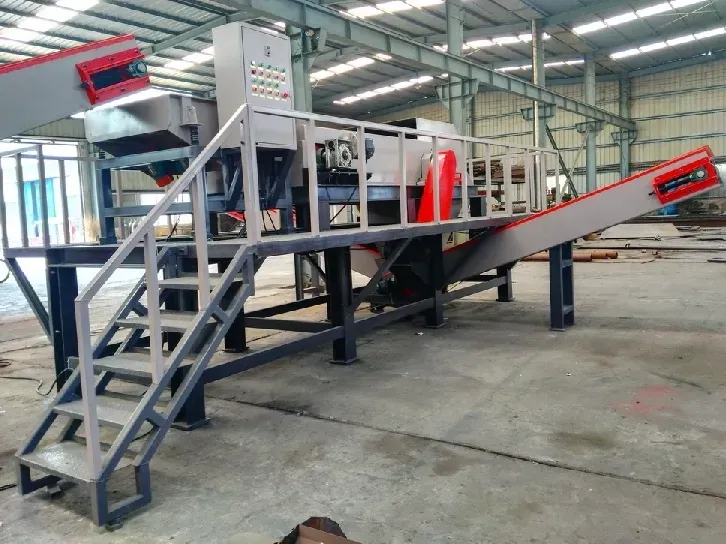

dec. . 12, 2024 19:38 Back to list
How to Dispose of Circuit Boards Responsibly
Circuit boards, found in electronics ranging from smartphones to washing machines, are essential components that enable devices to function. However, their disposal can pose significant environmental risks due to the presence of hazardous materials. Therefore, it’s crucial to handle their disposal responsibly. This article outlines several methods and best practices for disposing of circuit boards properly.
Understanding Circuit Boards and Their Components
Circuit boards are primarily composed of non-biodegradable materials such as fiberglass and plastic, along with metals like copper, tin, and lead. The presence of heavy metals can lead to environmental contamination if the boards are improperly disposed of in landfills. When circuit boards break down, they can leach toxic substances into the soil and water supply, impacting local ecosystems and human health. Recognizing the potential dangers of improper disposal is the first step toward responsible handling.
Step 1 Evaluate Your Options
Before disposing of a circuit board, evaluate whether it can be reused or recycled. Many organizations and businesses look for old electronics to salvage parts. If the circuit board is still functional, consider donating it or selling it to individuals or companies that specialize in refurbishing electronics. This not only prevents waste but also maximizes the utility of the material.
Step 2 Research Recycling Programs
If reuse isn’t an option, the next best strategy is recycling. Many electronic waste (e-waste) recycling centers accept circuit boards. These facilities are equipped to dismantle electronics and recover valuable materials while ensuring hazardous substances are disposed of correctly. Research local e-waste collection events, or find certified e-recyclers in your area. The Institute of Scrap Recycling Industries (ISRI) provides a directory where you can locate certified recyclers.

Step 3 Properly Prepare the Circuit Boards
Before recycling or donating circuit boards, prepare them by removing any non-circuit board components such as plastics, batteries, and hard drives. These components may have different disposal methods and should be handled according to their specific guidelines. By separating these materials, you help streamline the recycling process and ensure that each part is handled appropriately.
Step 4 Drop-off Locations and Services
Many communities offer drop-off locations for e-waste. Check with your local waste management authority or the city’s public works department for information on designated drop-off sites. Some retailers, particularly electronics stores, provide recycling services for a variety of electronic waste, including circuit boards. In some cases, they might even offer incentives, such as discounts on future purchases, for participating in their recycling programs.
Step 5 Explore Mail-in Recycling Programs
If local options are not available, consider mail-in recycling programs. Several organizations have established service options where you can send your circuit boards for recycling. Often, these programs provide sturdy packaging materials and prepaid shipping labels, making the process convenient and straightforward. Research companies that offer such services to find one that fits your needs.
Conclusion The Importance of Responsible Disposal
Disposing of circuit boards responsibly is essential in mitigating environmental harm. By evaluating your options for reuse or recycling, preparing the boards correctly, and utilizing local resources or mail-in programs, you can ensure that your electronic waste does not end up harming the planet. As technological advancements continue to evolve, it's vital to be conscious of our electronic consumption and disposal practices. Each small action contributes to a cleaner, more sustainable environment. By being proactive about circuit board disposal, we can help protect our ecosystems and foster a more responsible relationship with technology.
Latest news
Troubleshooting Common Eddy Separator Problems
NewsJul.04,2025
The Role of Metal Recycling Plants in Circular Economy
NewsJul.04,2025
The Impact of Recycling Line Pickers on Waste Management Costs
NewsJul.04,2025
Safety Features Every Metal Shredder Should Have
NewsJul.04,2025
How Industrial Shredders Improve Waste Management Systems
NewsJul.04,2025
How Cable Granulators Contribute to Sustainable Recycling
NewsJul.04,2025